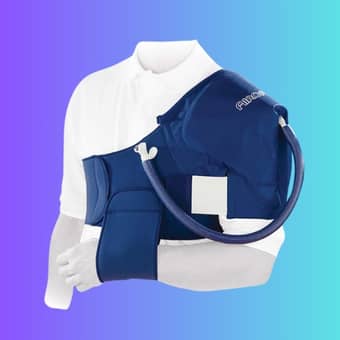Most people struggle to lose weight. High-calorie foods tempt them and derail their progress. Smart choices and healthy habits can help you manage meals and snacks. This will help your diet support your weight loss goals. This post will share how to avoid calorie-laden foods while enjoying delicious meals. Let’s look at ways to empower yourself for better weight loss. You can do this by making smarter food choices.

Table of Contents
Key Takeaways:
-
Plan Meals: Prepare your meals in advance. This controls ingredients and portions. It helps avoid high-calorie options.
-
Choose Whole Foods: Eat whole, unprocessed foods. They are low in calories and high in nutrients. Examples include fruits, vegetables, and whole grains.
-
Read Labels: Always check nutritional labels for hidden sugars and high-calorie ingredients. This helps you make informed choices while shopping.
I. Understanding High-Calorie Foods
To make informed diet choices, you must know which foods are high in calories. These items are high in calories for their small size. They can hinder your weight loss efforts. This category includes foods high in added sugars, unhealthy fats, and processed ingredients. Knowing these foods can help you plan healthier meals.
1.1. Identifying High-Calorie Items

You can often spot high-calorie foods by examining their nutritional labels and ingredients. Check for items with over 100 calories per serving. Focus on those with high sugar or fat. Common culprits include sugary snacks, fried foods, and sugary beverages. Identify the high-calorie items in your pantry and kitchen. Replace them with healthier options.
1.2. Recognizing Hidden Calories
If you avoid high-calorie foods but see no results, hidden calories may be the cause. Many everyday items, like condiments and drinks, add hidden calories. These small additions can add up. It’s easy to exceed your daily calorie goals.
High-calorie items can sneak into your diet in many ways. They often disguise themselves as harmless additions. For example, a tablespoon of mayonnaise or a little sugar in your coffee may not seem like much. But they can accumulate to a significant amount over the course of the day when combined. Check serving sizes. Choose lower-calorie versions of these hidden sources. They can help with your weight loss efforts.
II. How-to Tips for Avoiding High-Calorie Foods
There’s no need to sacrifice flavor while cutting high-calorie foods from your diet. Follow these tips to maintain a healthy lifestyle:
-
Be mindful of portion sizes.
-
Swap out sugary beverages for water or tea.
-
Limit processed and fast food.
-
Focus on whole, nutrient-dense foods.
-
Choose lean proteins and healthy fats.
Assume that making small changes will lead to significant results over time.
2.1. Meal Planning Strategies
A good meal plan can help you avoid high-calorie foods. Map out your weekly meals. Focus on whole grains, lean proteins, and lots of fruits and vegetables. This structure saves you time. It helps avoid impulsive, unhealthy choices that can ruin your weight loss efforts.
2.2. Smart Grocery Shopping

Your grocery shopping habits have a significant impact on your dietary choices. Make a list before you go and stick to it to avoid impulse buys. Shopping when you’re not hungry can also help you resist high-calorie junk food.
A great strategy is to shop the store’s perimeter. That’s where you’ll find fresh produce, meats, and dairy. Avoid the inner aisles. They have processed foods high in sugars and unhealthy fats. Don’t hesitate to read labels to identify hidden calories and preservatives. This will fill your cart with healthier foods to aid your weight loss.
III. Factors Influencing Food Choices
Many factors affect food choices. They can aid or hinder your weight loss journey. Consider the following:
-
Stress levels
-
Emotional state
-
Social influences
-
Availability of food options.
-
Personal preferences
Seeing these influences can help you make better food choices.
3.1. Emotional Eating
Food can comfort you in tough times. It may lead you to eat too many calories and derail your progress. Identifying triggers, like stress or anxiety, can help. It can lead you to healthier ways to cope instead of high-calorie snacks.
3.2. Social Situations

Events can strongly influence food choices. This is due to peer pressure and social expectations. You might crave calorie-dense foods due to their availability or others’ indulgence.
It is important to be aware of how social settings can influence your eating patterns. To maintain your weight loss and enjoy socializing, practice self-advocacy. Make smart food choices and decline unhealthy options with courtesy.
IV. Healthier Alternatives
Certain foods have a greater impact on weight loss than others. Choosing healthier alternatives can greatly enhance your progress and provide satisfaction. Swap calorie-dense foods for lighter options. This will help your energy and support your weight loss. With some creativity, you can enjoy tasty meals. You won’t feel deprived.
4.1. Low-Calorie Substitutes

To make better choices, incorporate low-calorie substitutes into your meals. For instance, use zucchini noodles instead of regular pasta. Or, use cauliflower rice instead of white rice. These options are lower in calories and packed with nutrients. They let you enjoy larger portions while cutting calories.
4.2. Nutrient-Dense Foods
Healthier food choices add vital vitamins and minerals to your diet. They also keep your calorie count in check. Focus on incorporating foods such as leafy greens, lean proteins, and whole grains. These items can keep you full longer and boost your health. They can make your weight loss efforts more manageable and sustainable.
Nutrient-dense alternatives like quinoa, sweet potatoes, and legumes are excellent. They give you lasting energy and help you feel full. These options provide vital nutrients. They help your body work well and support your weight loss goals. Eating whole, minimally processed foods can improve digestion and contribute to health. This can make your journey more enjoyable.
V. Mindful Eating Practices
Mindful eating can lead to much improvement in your weight loss efforts. So, try to add it to your daily routine. Focusing on eating lets your body recognize hunger and enjoy your meals. This approach helps you have a healthier relationship with food. It leads to better choices and results.
5.1. Eating with Awareness
If you engage all your senses while eating, it will transform your meals. This simple habit can do that. Focus on the taste, texture, and aroma of each bite. Savor your food completely. This creates a calming space that promotes mindfulness. It leads to greater satisfaction with smaller portions.
5.2. Part Control Techniques

Measuring your food or using smaller plates can help. They are great ways to manage your part sizes. A smaller amount of food on your plate helps you eat less. This can prevent overeating and help with weight loss.
The plate method is a good technique. It says to fill half your plate with vegetables, a quarter with lean protein, and a quarter with whole grains. Also, using measuring cups or a food scale can help you better understand serving sizes. This will ensure you eat an appropriate amount that aligns with your daily caloric needs. These part control techniques will help you enjoy high-calorie foods. You’ll have satisfying meals, too.
VI. Building a Support System
To lose weight, avoid high-calorie foods. It’s vital to build a support network. Being around people who share your goals can significantly enhance your success. This support system will keep you motivated and accountable. It will help you both make healthier choices.
6.1. Finding Accountability Partners
An accountability partner can be a friend or family member. They should have similar weight loss goals. By checking in with each other often, you both can maintain motivation and stay on track. Your partner can encourage you in tough times. They can also help you celebrate your successes. This creates a positive environment for your weight loss journey.
6.2. Joining Support Groups

Support groups provide a space to share your experiences and challenges. These groups often have valuable insights from those who know your situation. Also, they foster a sense of community, helping you feel less isolated in your journey. They often host meetings, workshops, or forums. You can gain insights and stay motivated through collective support.
Understanding that others are facing similar challenges can make your journey less daunting. A support group is a safe space to share struggles and tips. You can also learn from others’ experiences. Camaraderie can strengthen your resolve to avoid high-calorie foods. It can help you lose weight.
Avoid High-Calorie Foods: The Key to Effective Weight Loss
In conclusion, to lose weight, choose your foods with care. Avoid high-calorie foods. Eat whole, nutrient-dense foods. Limit processed and high-sugar items. You can meal prep to control portions. Read labels to make informed choices. Choose healthy snacks to curb your hunger. Stay hydrated and watch what you eat. It will help your weight loss. Prioritizing your nutrition and making small changes will help you. You’ll find it easier to achieve and maintain your weight loss goals.
FAQ
Q: What are some high-calorie foods I should avoid for better weight loss results?
High-calorie foods include sugary drinks, fast food, baked goods, snacks, and fatty meats. For better weight loss, it is best to replace these with whole foods. Eat fruits, vegetables, whole grains, lean proteins, and low-fat dairy.
Q: How can I identify high-calorie foods when shopping for groceries?
To identify high-calorie foods, check the nutrition labels on packaging. Check for items high in sugar, saturated fats, and calories. Also, be wary of “light” or “low-fat” foods. They may still have high-calorie ingredients.
Q: Are all fats bad when trying to avoid high-calorie foods?
Not all fats are bad. Healthy fats, like those in avocados, nuts, seeds, and olive oil, can be good in moderation. Drop trans fats and reduce saturated fats in processed and fried foods. This will improve weight loss results.
Q: What are some effective strategies to avoid high-calorie foods while eating out?
When dining out, check the menu first. Choose dishes with vegetables, lean proteins, and whole grains. Share dishes, choose lighter appetizers, and skip high-calorie sauces. Making informed choices will aid in reducing your calorie intake.
Q: How can planning my meals help in avoiding high-calorie foods?
Meal planning allows you to prepare balanced meals that focus on lower-calorie ingredients. Preparing your meals in advance can help. It avoids impulsive choices. It ensures you have nutritious options ready. It promotes healthier eating and reduces cravings for high-calorie foods.
Last Updated on August 9, 2025 by LE HONG CUONG






One thought on “How to avoid high-calorie foods for better weight loss results?”